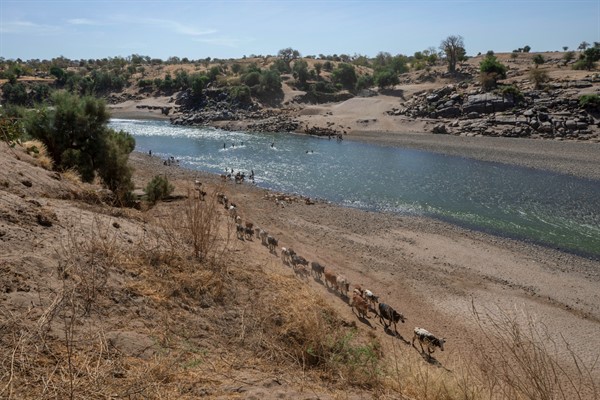In mid-February, Sudan summoned home its ambassador to Ethiopia amid an escalating dispute over a stretch of agricultural land along the two countries’ border. Both sides have accused each other of seizing territory by force, and Sudanese authorities have reported at least a dozen deaths, including some soldiers, due to incursions by Ethiopian militias. There is now an uncomfortably high possibility of an open military conflict between the two neighbors, both of which have grappled with domestic unrest in recent months and are going through their own delicate political transitions. Such a border war would be a serious threat to regional security.
Bilateral tensions have been rising since mid-December, when Sudan’s military announced that one of its border patrol units was ambushed by “Ethiopian forces and militias” in an area known as al-Fashqa, where Sudan’s al-Qadarif province meets the Ethiopian state of Amhara.
According to a 1902 treaty between Great Britain—which then ruled Sudan—and Ethiopia’s Emperor Menelik, al-Fashqa is part of Sudanese territory. However, the border is largely unmarked, and Ethiopian farmers have long settled the land and cultivated its fertile soil. In 2008, Ethiopian Prime Minister Meles Zenawi negotiated a deal with the government of Sudan: Addis Ababa would recognize al-Fashqa as part of Sudan, in exchange for Ethiopian farmers being allowed to stay on the land. However, many members of the Amhara ethnic group and others living near the Sudanese border were outraged by the deal. They accused Zenawi—who hailed from the northern Tigray region, a longtime rival of Amhara—of selling them out by conceding the land to Sudan.

